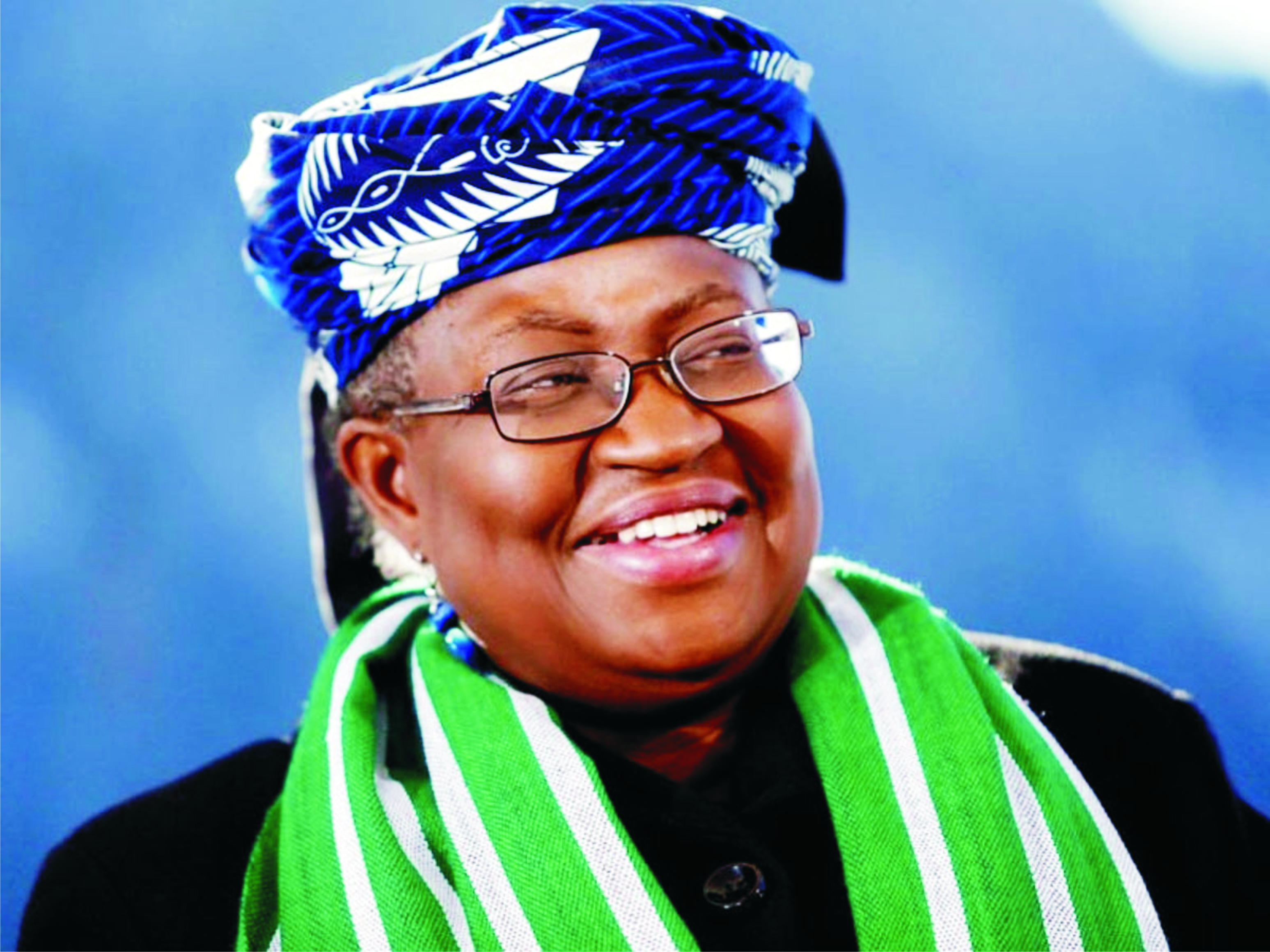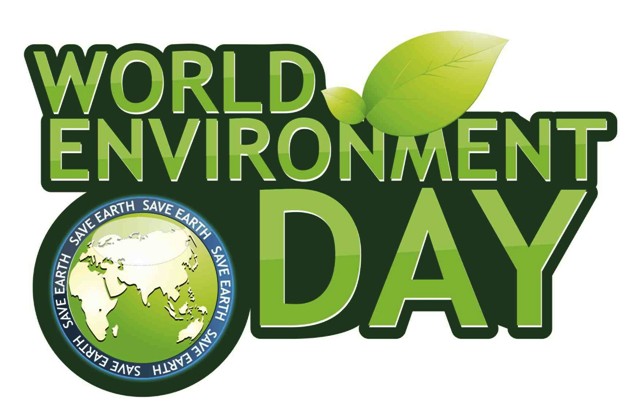Editorial
Lessons From Okonjo-Iweala’s Appointment

South African President, Cyril Ramaphosa, early this month announced the appointment of Dr Ngozi Okonjo-Iweala as a member of the expanded Presidential Economic Advisory Council (PEAC) put together by his government to rescue the country from its third recession since 2008. The country relapsed into recession at the end of December, 2019.
The council, chaired by Ramaphosa himself, and comprising local and international economic experts, was initially constituted on September 27, 2019, to “ensure greater coherence and consistency in the implementation of economic policy and ensure that government and society in general is better equipped to respond to changing economic circumstances”. It is also expected to advise the president and government more broadly, facilitating the development and implementation of economic policies that spur inclusive growth.
South Africa, the second largest economy on the continent has, in recent years, been rattled by a plethora of challenges, driven by lull in investor sentiment and lingering policy uncertainty, weak power, telecom and transportation sectors, and worsened by crisis in mining and manufacturing sectors. The problem is exacerbated by rising rate of official corruption, divisions in the ruling African National Congress (ANC), xenophobia nurtured by heightened unemployment and increasing insecurity.
Indeed, South Africa’s perilous public finance crisis has been engineered by four forces: stagnant economic growth; consistent tax revenue collection below forecasts; rising debt burden – the highest levels in post-apartheid era; and poor performance of state-owned enterprises, necessitating large-scale bailouts from lean government funds.
These have been triggered by three dynamics: slow recovery from shock of the 2008 global financial crisis; poor economic and public finance performance negatively affected by entrenched institutional destabilisation of Jacob Zuma’s presidency; and continued deterioration of economic indicators (growth and employment) along with further underperformance of revenue collection and public finances under the Ramaphosa government even with expansionary fiscal spending far above revenue generation. It is to address these challenges that Ramaphosa tapped Okonjo-Iweala to help rescue the country from economic doldrums.
The Tide joins millions of Nigerians and leaders across all continents in congratulating one of the world’s best economists and development experts on her meritorious appointment by Ramaphosa. We are proud to commend Okonjo-Iweala not just because she is a Nigerian and brilliant, but because her appointment represents a testament to her competence and experience. We say so because we are convinced that her pedigree and impeccable footprints in monetary and economic administration in Nigeria, many developing countries and at the World Bank stood her out for this sublime assignment.
The 1981 PhD graduate in Regional Economics and Development from Massachusetts Institute of Technology (MIT) spent 25 years of her career at the World Bank as a development economist, scaling the ranks to Number 2 position of managing director, Operations (2007-2011), with oversight responsibility for the bank’s $81 billion operational portfolio in Africa, South Asia, Europe and Central Asia. She spearheaded several World Bank initiatives to assist low-income countries during the 2008 – 2009 food crises and later during the financial crisis, and helped many recover from slow growth to robust economic state.
In 2010, she was Chair of the IDA replenishment, the World Bank’s successful drive to raise $49.3 billion in grants and low interest credit for the poorest countries in the world, and was also member of the Commission on Effective Development Cooperation with Africa. In the last two decades, she has served as senior adviser, executive director, director, chair or co-chair of more than 30 boards of world-class banks, academic and research institutions, development-driven organizations across all continents, including Harvard, Oxford, the Brookings Institution, African Union, World Economic Forum, United Nations, Rockefeller Foundation, Mercy Corps International; and in 2012, ran as the first-ever female candidate for president of the World Bank.
Okonjo-Iweala was a two-time minister of finance, serving under Olusegun Obasanjo (2003-2006), and Goodluck Jonathan (2011-2015). She was the first female to hold that position in Nigeria and her performance speaks for her.
During her first term, she spearheaded negotiations with the Paris Club of Creditors that led to the wiping out of $30 billion of Nigeria’s debt, including the outright cancellation of $18 billion. In 2003, she led efforts to improve Nigeria’s macroeconomic management, including implementation of an oil-price based fiscal rule where revenues accruing above benchmark oil price were saved in special “Excess Crude Account” which helped reduce macroeconomic volatility.
She also introduced the practice of publishing each state’s monthly financial allocation from the Federation Accounts in the newspapers, which increased transparency in governance. With support of the World Bank and IMF, she helped build an electronic financial management platform – the Government Integrated Financial Management and Information System (GIFMIS), including the Treasury Single Account (TSA) and the Integrated Payroll and Personnel Information System (IPPIS), helping to curtail corruption in the process.
As at December 31, 2014, the IPPIS platform had eliminated 62,893 ghost workers from the system and saved government about $1.25 billion in the process. Under the present administration, more than 70,000 ghost workers have been eliminated from the payroll system, and billions of Naira saved for investment in development initiatives. She was also instrumental in helping Nigeria obtain its first-ever sovereign credit rating (BB minus) from Fitch Ratings and Standard & Poor’s in 2006.
Under her leadership, the National Bureau of Statistics carried out a re-basing exercise of the Gross Domestic Product (GDP), the first in 24 years, which saw Nigeria emerge as the largest economy in Africa.
With her record, we think that Ramaphosa made the right decision by appointing Okonjo-Iweala as a member of the country’s PEAC, to help fix its economy and inspire growth and development by advising stable policies that encourage investment.
We, therefore, urge her to pragmatically bring her wealth of experience to bear in helping the South African Government make history by reviving an economy that has been in limbo for about 12 years. She had done it for Nigeria before; she can as well do it for South Africa.
On the other hand, we challenge all tiers of government in Nigeria to emulate the South African Government in placing merit and competence far and above nepotism and tribalism in recruitment and appointment into various offices in order to fast-track development of the country.
We think that the nation’s economy can do better if governments eschew parochial sentiments and implement inclusive policies that recognise hardwork and excellence.
Editorial
Responding To Herders’ Threat In Rivers

Editorial
Democracy Day: So Far…

Nigeria’s return to democratic rule in 1999 marked a watershed moment in the nation’s political history. After enduring nearly 16 years of successive military dictatorships, Nigerians embraced a new era of civil governance with the inauguration of President Olusegun Obasanjo on May 29, 1999. Since then, the country has sustained a democratic system for 26 years. But, this democratic journey has been a complex mix of progress and persistent challenges.
The formal recognition of June 12 as Democracy Day in 2018 by former President Muhammadu Buhari acknowledged a long-standing injustice. The annulment of the 1993 presidential election, Nigeria’s freest, betrayed the democratic aspirations of millions. That it took decades to honour this date reflects the nation’s complex relationship with its democratic memory.
One of the most momentous successes of Nigeria’s democracy has been the uninterrupted civilian rule over the last two and a half decades. The country has witnessed seven general elections, with power transferring peacefully among different political parties. This is particularly notable considering that prior to 1999, no civilian government had completed a full term without military intervention. The peaceful transitions in 2007, 2015, and 2023 are testaments to Nigeria’s evolving democratic maturity.
Electoral participation, while uneven, has also reflected a level of democratic engagement. In 2003, voter turnout stood at about 69 per cent, but this figure dropped to approximately 34.75 per cent in 2023, according to the Independent National Electoral Commission (INEC). Although the declining turnout raises concerns, it also highlights the increasing expectations of the electorate, who demand credible and transparent elections.
Another area of progress is the growth of a vibrant and free press. Nigerian media has played a crucial role in holding governments accountable and fostering public discourse. Investigative journalism and civil society activism have exposed corruption and human rights abuses. The rise of social media has further expanded the democratic space, enabling young Nigerians to mobilise and advocate for change, as evidenced by the 2020 #EndSARS protests.
Judicial independence has seen mixed results. On one hand, the judiciary has occasionally demonstrated resilience, such as in landmark rulings that overturned fraudulent elections or curtailed executive excesses. On the other hand, allegations of political interference and corruption within the judiciary persist, undermining public confidence in the legal system’s impartiality.
Nigeria’s democracy has also facilitated the decentralisation of power through the federal system. State governments now wield some autonomy, allowing for experimentation in governance and service delivery. While this has led to innovative policies in some states, it has also entrenched patronage networks and uneven development across the federation.
Despite these successes, Nigeria’s democratic journey faces formidable problems. Electoral integrity remains a critical concern. Reports from election observers, including those from the European Union and ECOWAS, frequently highlight issues such as vote-buying, ballot box snatching, and violence. The introduction of the Bimodal Voter Accreditation System (BVAS) and electronic transmission of results in 2023 elections showed promise, but technical glitches and alleged manipulations dampened public trust.
Corruption continues to be a pervasive issue. Nigeria ranks 145th out of 180 countries on Transparency International’s 2023 Corruption Perceptions Index, with a score of 25/100. Democratic institutions meant to check graft—such as anti-corruption agencies and the legislature—often struggle due to political interference and weak enforcement mechanisms.
Security challenges have also strained Nigeria’s democracy. Insurgency in the North East, banditry in the North West, separatist agitations in the South East, and herder-farmer conflicts across the Middle Belt have collectively resulted in thousands of deaths and displacements. According to the Global Terrorism Index 2024, Nigeria ranks as the eighth most impacted country by terrorism. The government’s difficulty in ensuring safety erodes public confidence in the state’s capacity and legitimacy.
The economy poses another critical remonstrance. Nigeria’s Gross Domestic Product (GDP) per capita stands at approximately $2,400 as of 2024, with over 40 per cent of the population living below the national poverty line. High unemployment and inflation have fueled discontent and disillusionment with democratic governance, especially among youth. Without addressing economic grievances, the democratic dividend will remain elusive for many Nigerians.
Ethnic and religious divisions further complicate Nigeria’s democratic consolidation. Politicians often exploit identity politics for electoral gains, exacerbating social tensions. Although federal character principles aim to promote inclusiveness, they have also sometimes fostered a quota mentality rather than merit-based appointments.
Gender representation remains inadequate in Nigeria’s democratic institutions. Women occupy less than 10 per cent of seats in the National Assembly, one of the lowest rates globally. Efforts to pass gender parity bills have faced stiff resistance, highlighting deep-seated cultural and institutional barriers to female political participation.
Civil liberties, while constitutionally guaranteed, are under threat. Crackdowns on protesters, restrictions on press freedom, and surveillance of activists reveal an authoritarian streak within the democratic framework. The controversial Twitter ban in 2021 exemplified the country’s willingness to curb digital freedoms, prompting domestic and international criticism.
The political crisis in Rivers State embodies broader democratic struggles. Attempts to control the state through undemocratic means expose weaknesses in federal institutions and the rule of law. Immediate restoration of democratic governance in Rivers State is vital to preserving Nigeria’s democratic integrity and institutional credibility.
Local governments remain under the control of state governors, depriving citizens of grassroots democracy. Last year’s Supreme Court judgment on local government autonomy is promising, but state-level resistance threatens its implementation. Genuine autonomy would bring governance closer to the people and foster democratic innovation.
As we mark Democracy Day, we must honour the sacrifices of Chief M.K.O. Abiola, Kudirat Abiola, Femi Falana, Chief Gani Fawehinmi, Pa Alfred Rewane, President Bola Tinubu, and countless others, who fought for Nigeria’s freedom. As democracy in Nigeria continues to evolve after 26 years, this day should inspire action toward its renewal. With despotism and state failure as real threats, both citizens and leaders must take responsibility—citizens by demanding more, and leaders by delivering. Excuses are no longer acceptable.
Editorial
Nigeria’s Plastic Pollution Emergency

Yesterday, Nigeria joined the rest of the world to mark 2025 World Environment Day. The occasion serves as a stark reminder that our battle against plastic pollution requires more than symbolic gestures—it demands sustained, coordinated action from all levels of government. As communities worldwide grapple with mounting environmental challenges, Nigeria’s approach to plastic waste management stands at a critical juncture.
Dr. Ibinabo Ogolo, a Research Fellow at the Institute of Geosciences and Environmental Management at Rivers State University, has issued a timely call for comprehensive enlightenment campaigns targeting indiscriminate plastic waste disposal. Her message resonates with the urgency that characterises this year’s global theme: “Beat Plastic Pollution.”
The core challenge lies not in policy formulation but in implementation. Years of environmental initiatives have fallen short primarily due to inadequate public education and awareness campaigns. Citizens cannot be expected to adopt responsible waste disposal practices without understanding the gravity of their actions or knowing the proper alternatives.
Government platforms at federal, state, and local levels possess the infrastructure necessary to reach every corner of our society. Television, radio, social media, community meetings, and educational institutions provide ready channels for sustained messaging. The tools exist; what remains is the political will to deploy them effectively and consistently.
This year’s World Environment Day theme underscores the global recognition of plastic pollution’s devastating impact on ecosystems, wildlife, and human health. The message is clear: plastic waste represents one of the most pressing environmental challenges of our time, requiring immediate and sustained attention from policymakers and citizens alike.
The health implications of plastic pollution extend far beyond environmental aesthetics. Industrial and medical plastic wastes often contain toxic chemicals with carcinogenic properties, posing direct threats to human health. These materials don’t simply disappear when improperly disposed of-they infiltrate our environment, contaminating soil, water sources, and food chains.
Plastic additives released into the environment create a cascade of contamination that affects entire ecosystems. Wildlife suffers through ingestion, entanglement, and habitat destruction, while humans face exposure through contaminated water, food, and air. The interconnected nature of these impacts demands a comprehensive response that addresses both immediate disposal practices and long-term prevention strategies.
The link between plastic pollution and serious health conditions, including breast, ovarian, liver, and lung cancers, as well as various hormonal disorders, underscores the urgency of public education campaigns. Citizens have the right to understand how their daily choices affect not only environmental health but their own well-being and that of their families.
Despite scientific awareness of ocean plastic pollution dating back approximately 50 years, Nigeria’s rivers, creeks, and waterways continue to suffer from plastic waste invasion. This represents a failure of sustained commitment rather than a lack of knowledge about the problem’s existence and solutions.
The ritualistic approach to World Environment Day celebrations must end. Annual speeches and symbolic cleanups, while valuable, cannot substitute for year-round, systematic efforts to change behaviour and protect our environment. Governments must develop comprehensive frameworks that extend beyond June 5th commemorations.
Sustained enlightenment campaigns require dedicated funding, clear messaging, measurable objectives, and regular evaluation. Success depends on consistency, creativity, and community engagement that transforms environmental protection from a government mandate into a shared cultural value.
The path forward demands that all stakeholders-government officials, community leaders, educators, and citizens-recognize their roles in combating plastic pollution. Only through sustained, coordinated efforts can we hope to achieve the behavioural changes necessary to protect our environment and secure a healthier future for generations to come.
-
Politics3 days ago
Again Gunmen Attack Sen. Natasha’s Home In Kogi
-
Rivers3 days ago
FIDA, PCRC Trains Police Officers On How To Handle Paralegal Cases In Rivers
-
Sports3 days ago
NFF Unveils ‘Mission X’ Campaign For S’Falcons
-
News3 days ago
It’s time to reclaim ownership of our armed forces – Idris
-
Rivers3 days ago
Andoni Charges Students to Prioritize Studies, Dev
-
Niger Delta3 days ago
C’River Commences Inquiry Into NDDC’s Project Inauguration Disruption
-

 Entertainment3 days ago
Entertainment3 days agoPMAN Set To Implement Performance Levy ‘Tomorrow
-
Politics3 days ago
Gowon Explains Why Aburi Accord Failed

